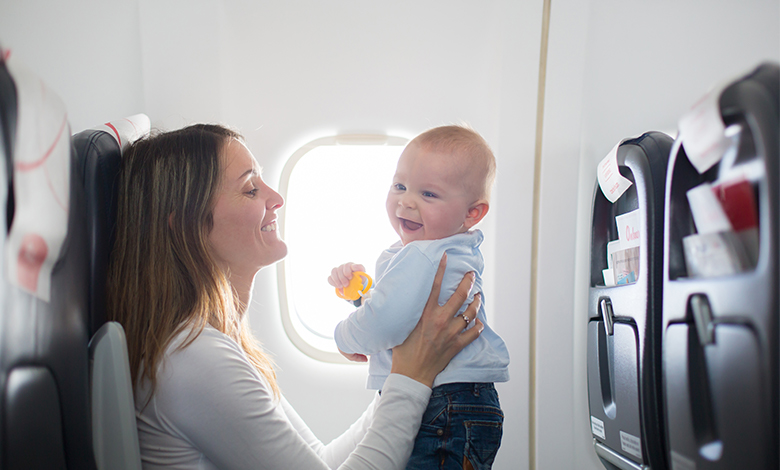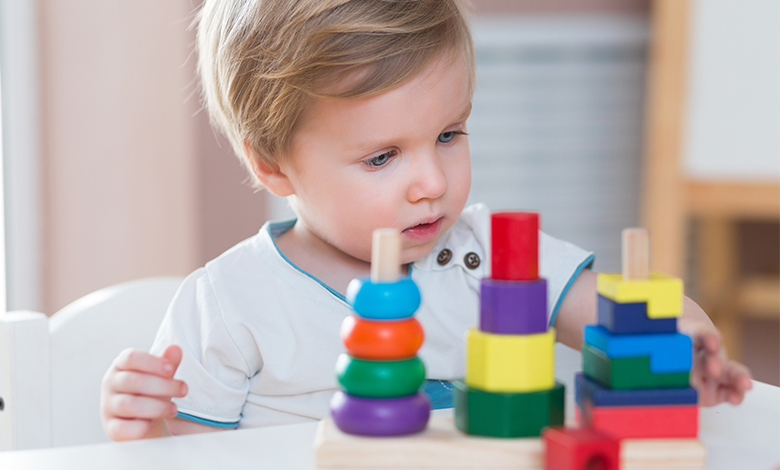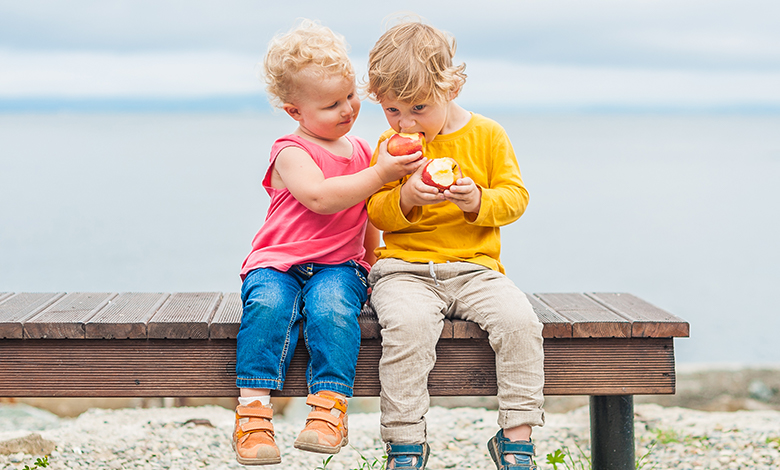- Try to stick to your regular routine
- Pack smart before you hit the road
- Leave room for some flexibility in your plans
5 tips for holidays with kids

Key points
By Sarah Kearns @sarahkearnsofficial
Before we had kids, my partner and I did a lot of travelling. We’d pack light and head off, ready to immerse ourselves in a new world. Nowadays, with 3 boys, our travelling looks a little different – but that doesn’t mean we don’t have amazing holidays. We go to Queensland once a year for a family trip and do all of the theme parks – it’s so much fun. By now, we’ve perfected the process and it’s become a relaxed experience that we can all enjoy. Here are my top tips for your little one’s first big trip.
1. Hit the ground running
We worked out pretty quickly that it’s not very fun to travel with children in a car. Now, we always travel at night. We pack the car and then all go to bed at 6:00pm. Once our youngest child wakes up for a feed – around midnight – we bundle the kids into the car and away we go. This way, we usually get about 6 hours of uninterrupted driving time while the kids sleep. We also request early check-ins at hotels, so we can go straight to where we’re staying, settle in, have a quiet morning and catch up on rest.
2. Keep your rhythm
We’re not entirely routine-oriented as parents, but we do follow a regular rhythm. This means we can stick to that no matter where we are or what we’re doing. For example, our evenings go dinner, then a bath, then a book and then bedtime. Using this system, we can easily accommodate naps and meals when we’re on holiday. Our youngest sleeps near the middle of the day, so we all eat lunch at around 11:30am and then pop him in the carrier for his usual nap – even if we’re in the middle of a theme park. This way, we’re setting ourselves up for an easy afternoon and bedtime, rather than having to fight a big battle.
3. Pack an emergency bag
We always have a just-in-case bag, and it’s especially useful when you’re travelling. I find everything gets put into suitcases, then you’re out on the road and realise you need sunscreen and have to start unpacking luggage. Our just-in-case bag is stocked with paracetamol, Ibuprofen, some snacks, a change of clothes, Band-Aids – all the things you might need that you don’t normally carry in a nappy bag. Make sure you keep it somewhere readily accessible (we keep ours in the boot of the car).
4. Stay flexible
We do our best to avoid things that are going to feel like hard work while on holiday, and that means building some flexibility into plans.I know that when I’m stressed, I’m not having a good time and kids can pick up on that. This means we deliberately allow for downtime, rather than trying to put together a jam-packed schedule – because you can’t bank on kids coping.
We don’t let our wants get ahead of our needs. For example, when we book theme parks, we always buy a multi-day ticket. That means if it’s just not working – maybe the little ones are too tired or overwhelmed – we can call it a day and come back later.
5. Make it a shared experience
If you’re lucky enough to have someone close to you – a family friend or relative – who you can bring along, I’d highly recommend it. We take my parents on our annual holiday and it’s so rewarding to watch them making these bonds with the kids, to build these lifelong memories.
Of course, it also allows you to have a bit of a holiday as well. We generally take a two-week trip, which means there are a few nights when my partner and I can get away and spend some time by ourselves. After all, family holidays are for everyone.
Related pages

Get in touch with our Careline experts
When your little one is unhappy or unwell you want reliable support from a trusted source. Our Careline team of nutritionists, dietitians and midwives specialise in infant and child health, offering free nutrition, feeding and product information.
Every feeding journey is unique
Not every parent can produce breast milk. No matter what choice you make, we will support your unique feeding journey.
We at Nutricia believe in providing the best nutrition for babies, which is why we recognise breast milk is uniquely superior for babies as it provides many benefits. It is important that mums have a healthy diet to support breastfeeding. A decision not to breastfeed, or partial bottle feed, may reduce breast milk supply making it difficult to reverse. The cost and social implications of using feeding methods should be considered. Always seek professional advice about feeding your baby. Ensure formula is used as directed as improper use can affect baby’s health.
REMEMBER: The information on this page is general only. If you have any concerns about your baby’s poo or questions about constipation or any other health concerns, please speak to a healthcare professional, like a Pharmacist, GP or Maternal Child Health Nurse.



